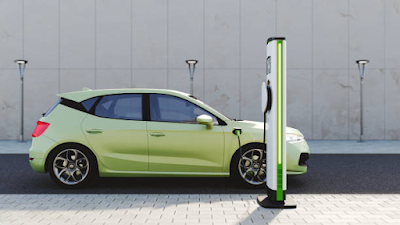Is It Worth Buying an Electric Vehicle in 2025? Expert Insights & Cost Analysis
Electric vehicles (EVs) are no longer the future—they’re the present. With rising fuel costs, government incentives, and growing charging infrastructure, many are considering making the switch. But is 2025 the right time to invest in an EV? Let’s break it down.
The Cost Factor – Are EVs Cheaper in the Long Run?
Initial Purchase Cost vs. Petrol/Diesel Cars
Government Subsidies (FAME II, State Incentives, Tax Benefits)
- FAME II subsidies reduce EV costs by up to ₹1.5 lakh.
- State-level incentives offer tax rebates and registration fee waivers.
- Income tax benefits on loans for EV purchases under Section 80EEB.
Maintenance & Running Costs (Lower vs. ICE Vehicles)
- EVs have fewer moving parts, meaning lower maintenance costs.
- Charging costs are lower than fuel expenses, especially with home charging.
- No oil changes, fewer brake replacements, and no exhaust system repairs.
EV Battery Replacement Costs: Should You Worry?
- Battery costs are dropping, making replacements more affordable.
- Most manufacturers offer 8-10 years of battery warranty.
Charging Infrastructure – Is It Convenient in 2025?
Current EV Charging Network in India
The Indian government and private players are aggressively expanding EV charging stations, with a focus on highways and urban centers.
Home Charging vs. Public Charging: Pros & Cons
- Home Charging: Convenient, but installation costs around ₹50,000.
- Public Charging: Rapid charging available, but queues can be an issue.
Fast Charging vs. Regular Charging: What You Need to Know
- DC fast charging can charge an EV up to 80% in 30-45 minutes.
- AC slow charging takes 6-8 hours but is ideal for overnight charging.
Charging Costs vs. Petrol Costs – Is It Worth It?
- Charging an EV at home costs ₹1-2 per km, while petrol costs ₹7-10 per km.
Performance & Driving Experience – How Do EVs Compare?
Instant Acceleration & Smooth Ride
EVs offer instant torque, making acceleration faster and smoother than petrol cars.
Battery Range in 2025 – Are Long Drives Possible?
With newer EVs offering 300-500 km range per charge, long drives are becoming more practical.
Weather Conditions: Can EVs Handle Extreme Heat & Rain?
- Modern EVs are designed to function efficiently in extreme temperatures.
- Waterproofing and battery management systems have improved significantly.
Environmental & Sustainability Benefits
Carbon Footprint Reduction – Are EVs Truly Eco-Friendly?
EVs reduce greenhouse gas emissions compared to ICE vehicles. However, electricity generation sources (coal vs. renewable energy) impact their total environmental benefit.
Battery Recycling & Sustainability Concerns
New technologies like lithium-ion battery recycling are making EVs even more sustainable.
Impact on Air Pollution in Indian Cities
A rise in EV adoption can significantly reduce urban air pollution, improving overall health conditions.
Resale Value & Long-Term Investment
Do EVs Hold Their Value? 2025 Market Trends
- Resale value of EVs is improving as demand increases.
- Battery degradation remains a concern but is reducing with new technologies.
Second-Hand EV Market in India – Is It Growing?
- Used EVs are gaining popularity, but buyers still hesitate due to battery health concerns.
- Certification programs for second-hand EVs are emerging.
Should You Lease or Buy an EV in 2025?
- Leasing is a good option if battery technology is a concern.
- Buying is ideal if government incentives and cost savings are priorities.
Final Verdict – Should You Buy an EV in 2025?
Summary of Pros & Cons
Pros:
- Lower running costs
- Government subsidies
- Better environmental impact
- Expanding charging infrastructure
Cons:
- Higher initial purchase price
- Charging time vs. fuel refill time
- Battery replacement concerns
Best EVs to Consider in 2025 (Budget & Premium Options)
- Budget: Tata Tiago EV, MG Comet, Citroën ëC3
- Mid-Range: Tata Nexon EV, Hyundai Kona, Mahindra XUV400
- Premium: Kia EV6, BMW iX, Mercedes-Benz EQB
Who Should Buy an EV & Who Should Wait?
✅ Buy an EV if: You want low running costs and eco-friendliness. ❌ Wait if: You drive long distances frequently without reliable charging access.
Expert Recommendations Based on Your Needs
- City Drivers: Small EVs with home charging setup.
- Highway Travelers: Hybrid or high-range EVs.
Conclusion
By 2025, EVs will be more accessible, affordable, and practical than ever. If government incentives remain strong and charging infrastructure expands further, it could be the best time to switch. What do you think? Would you consider buying an EV in 2025? Share your thoughts in the comments!
This Content Sponsored by Buymote Shopping app
BuyMote E-Shopping Application is One of the Online Shopping App
Now Available on Play Store & App Store (Buymote E-Shopping)
Click Below Link and Install Application: https://buymote.shop/links/0f5993744a9213079a6b53e8
Sponsor Content: #buymote #buymoteeshopping #buymoteonline #buymoteshopping #buymoteapplication










Join the conversation